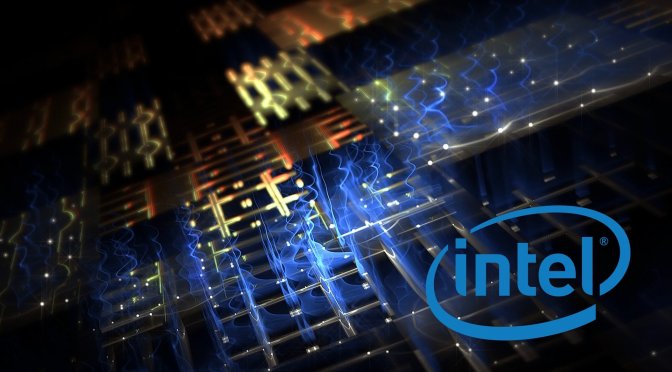INTEL was recently sued for unexpectedly delaying the 7nm process node, and now we have been informed that Intel has also allegedly infringed FinFET patents of the Microelectronics Institute of the Chinese Academy of Sciences. The patent review committee recently got an application that accuses Intel of violating patent number 201110240931.5, commonly referred to as FinFET patent, on July 28th.
This report comes from Small Tech News, via @chiakokhua (Twitter). The patent in question dates back to 2011 and it comes from the Chinese Academy of Sciences. The Chinese patent holders are asking for 200 million Yuan, which roughly translates to 28,664,380 USD. Although the lawsuit has not yet come to an end, but if Intel loses this lawsuit, it may face not only the compensation for patent infringement, but also the possibility that their CORE series of processors will be banned in China, or maybe other costs that must be paid if Intel is forced to settle this matter.
Aside from the fact that this patent infringement is a major one for Intel, it is sure that the company will be pursued extensively in court. All of the Intel’s semiconductors use FinFET technology so the violation comes at a very high price, and is big. The FinFET patent involved in this particular case is an ‘invention patent’ related to the FinFET process, and the patent strength of the Institute of microelectronics is very strong in the field of FinFET.
Since 2011, the third generation of core processors based on 22nm process node began to use FinFET process, due to the fact that FinFET is almost the best choice for the global mainstream wafer plants. In the patent infringement lawsuit of the Microelectronics Institute, the core series processor is also highlighted. Like mentioned before, the Institute of microelectronics has claimed injunction and compensation of almost 200 million Yuan. The amount claimed is not high as compared with the $400 million damages awarded in 2018 in another FinFET technology infringement case, the ‘Korean Academy of science and technology’ vs. ‘Samsung infringement’, but the ban in China could be more severe for Intel.
Of course, the possibility of a settlement between Intel and microelectronics cannot be ruled out, but it can be imagined that the settlement also needs a price. In addition to the pending FinFET patent litigation, in October 2019, the Microelectronics Institute also filed two lawsuits with the Beijing Intellectual Property Court, accusing the products manufactured and sold based on Intel Core I3 microprocessor infringed its patent right with application No. 201010269260.0 (referred to as MOSFET patent). Among them, the first defendants are Lenovo (Beijing) Co., Ltd. (hereinafter referred to as Lenovo) and Beijing Jiayun Huitong Technology Development Co., Ltd. (hereinafter referred to as Jiayun Huitong). The other defendants are Intel Corporation, Intel (China) Co., Ltd., Intel China Beijing Branch, Beijing Digital China Co., Ltd. (hereinafter referred to as Digital China) and Jingdong. In both these cases, injunctions and costs are required, and the right to claim damages of an unknown amount is reserved.
Dong Lin, patent director of Shenzhen Jiade Intellectual Property Services Co., Ltd., told The Micronet: “From a method point of view, as long as the side wall is formed on the outside of the gate line, and then cut off (electrical isolation) gate line finFET design, will fall into the microelectronics FET patent protection range. “
In July 2020, Intel submitted two requests for invalidation of MOSFET patents to the China Patent Reexamination Board, but so far no progress has been made. According to Dong Lin, the MOSFET patents involved mainly consist of semiconductor planar field-effect transistors, namely MOSFETs. Different from the three-dimensional design of FinFET channel, MOSFET is a two-dimensional design with larger size, which is mostly used in technical process nodes before 32nm.
In recent years, the Institute of microelectronics, Chinese Academy of Sciences, has been committed in promoting patent transformation, and has set up a patent transformation agency, ‘Zhongke Intellectual Property Management Service Co., Ltd’. This time, the lawsuit with Intel may not only protect its own intellectual property rights, but also promote the transformation of patents.
Hello, my name is NICK Richardson. I’m an avid PC and tech fan since the good old days of RIVA TNT2, and 3DFX interactive “Voodoo” gaming cards. I love playing mostly First-person shooters, and I’m a die-hard fan of this FPS genre, since the good ‘old Doom and Wolfenstein days.
MUSIC has always been my passion/roots, but I started gaming “casually” when I was young on Nvidia’s GeForce3 series of cards. I’m by no means an avid or a hardcore gamer though, but I just love stuff related to the PC, Games, and technology in general. I’ve been involved with many indie Metal bands worldwide, and have helped them promote their albums in record labels. I’m a very broad-minded down to earth guy. MUSIC is my inner expression, and soul.
Contact: Email

